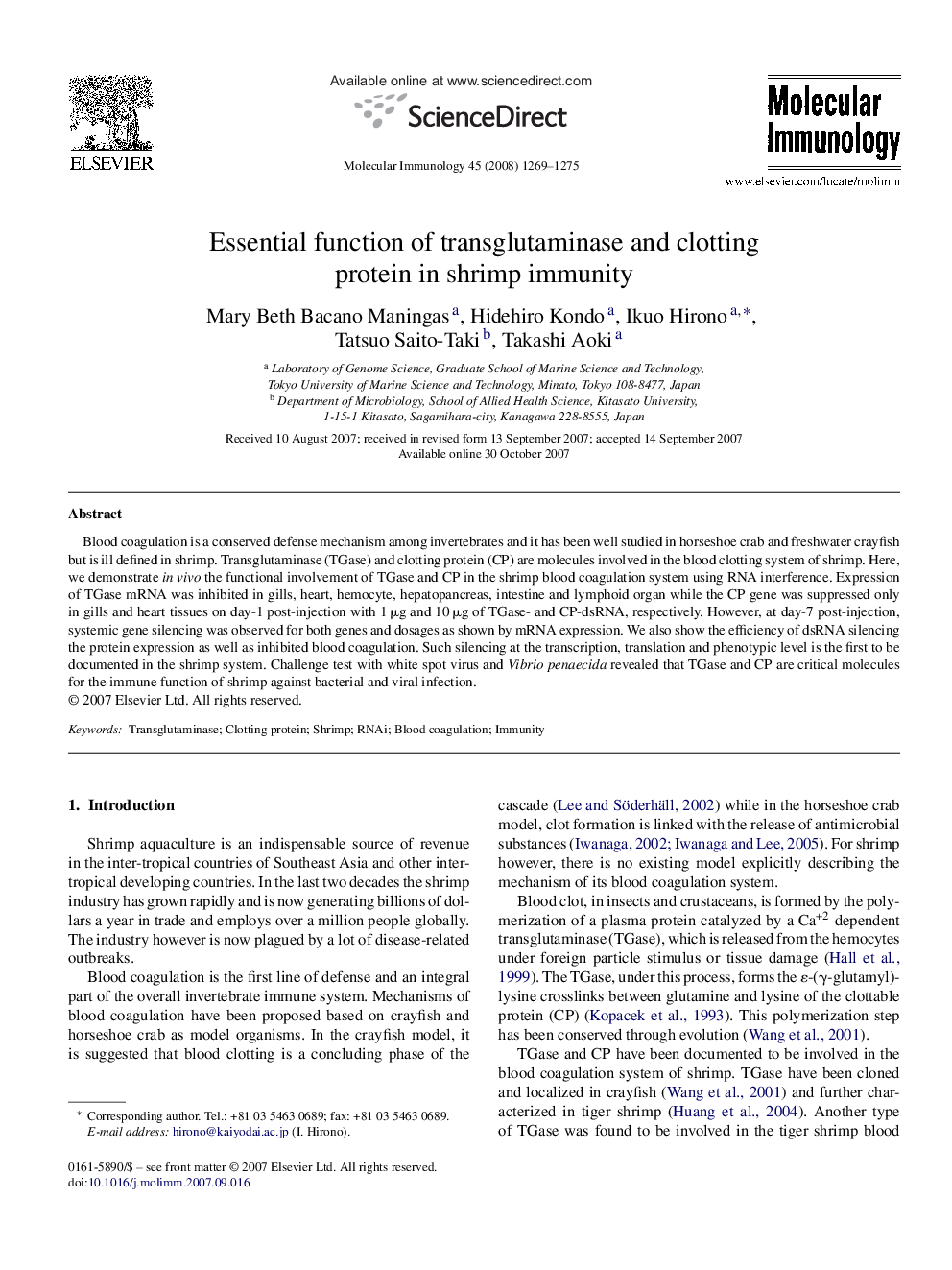| Article ID | Journal | Published Year | Pages | File Type |
|---|---|---|---|---|
| 2832811 | Molecular Immunology | 2008 | 7 Pages |
Blood coagulation is a conserved defense mechanism among invertebrates and it has been well studied in horseshoe crab and freshwater crayfish but is ill defined in shrimp. Transglutaminase (TGase) and clotting protein (CP) are molecules involved in the blood clotting system of shrimp. Here, we demonstrate in vivo the functional involvement of TGase and CP in the shrimp blood coagulation system using RNA interference. Expression of TGase mRNA was inhibited in gills, heart, hemocyte, hepatopancreas, intestine and lymphoid organ while the CP gene was suppressed only in gills and heart tissues on day-1 post-injection with 1 μg and 10 μg of TGase- and CP-dsRNA, respectively. However, at day-7 post-injection, systemic gene silencing was observed for both genes and dosages as shown by mRNA expression. We also show the efficiency of dsRNA silencing the protein expression as well as inhibited blood coagulation. Such silencing at the transcription, translation and phenotypic level is the first to be documented in the shrimp system. Challenge test with white spot virus and Vibrio penaecida revealed that TGase and CP are critical molecules for the immune function of shrimp against bacterial and viral infection.
